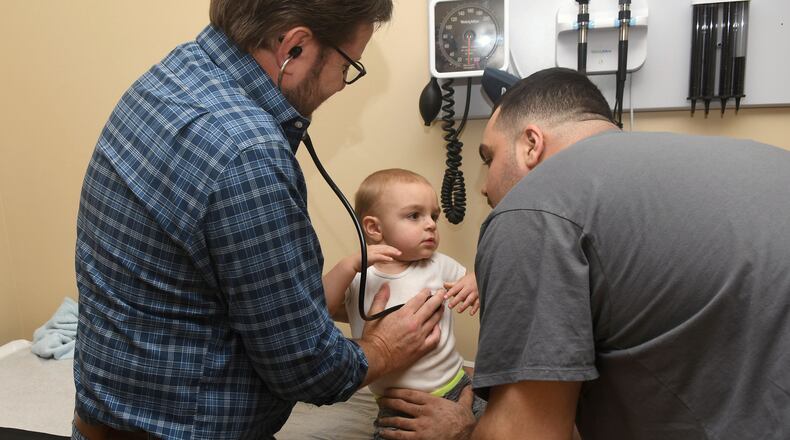The number of uninsured children in Georgia dropped by 32 percent following the implementation of the Affordable Care, according to a new study funded by the Robert Wood Johnson Foundation.
In 2016, Georgia had 85,000 fewer children without health insurance than in 2013, according to the study. Only three other states added more children to health insurance — California, Texas and Florida.
Researchers stress that they didn’t study why the decline occurred.
“This study doesn’t address the causes,” emphasized Elizabeth Lukanen, deputy director of the State Health Access Data Assistance Center and lead author of the study. “That said, the drop in Georgia does coincide very neatly with the passage of the Affordable Care Act.”
She added that the gains in Georgia were seen across all income levels, “which is great news,” though most strongly in the poorest children.
The finding is curious because poor children — those whose families make up to 135 percent of poverty level — have always been eligible for Medicaid and PeachCare insurance in Georgia.
But even for kids who were already eligible for Medicaid or PeachCare, parents may not have known that, and found out when they went to get ACA coverage for the family, said Lukanen and Bill Custer, an expert with Georgia State University. Research shows families have a tendency to insure together regardless of eligibility, Custer said.
Lukanen added that strong publicity about the availability of health insurance during that time may have spurred people to check into it.
In any case, Lukanen said, these are numbers "we need to continue to monitor, because the future of ACA is in question," with a new lawsuit brought by 20 conservative states including Georgia. "To the extent to which things change with new policy we need to make sure that the gains for kids don't erode."
About the Author
Keep Reading
The Latest
Featured




